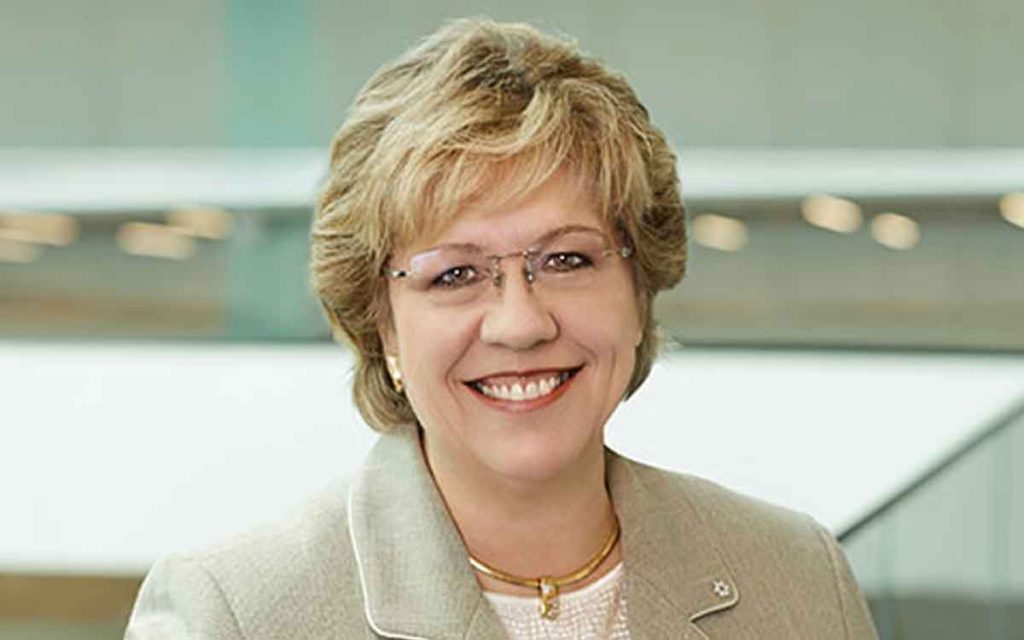
Janet Ecker.
Well, that pretty well makes it unanimous. All four teacher unions are now participating in rotating one-day strikes and work-to-rule actions that limit such things as report card writing, administrative tasks, extracurricular activities and organizing the province-wide Education Quality and Accountability (EQAO) tests.
How we ever came to this sorry state where extracurricular activities and report cards are not core duties is a long story, but here we are.
The provincial government has responded by offering to cover child care expenses for younger children affected by school closures. It will pay for the cost – well over 12,000 parents had already applied by the end of the first week – from savings that result when teachers aren’t paid for strike days.
Unions representing high school, elementary, Catholic and French teachers continue at loggerheads with the government over a requirement for two, mandatory on-line high school courses, a modest increase in class size in higher grades and a 1% wage increase.
To hear union leaders, this is “the end of public education as we know it.” The trouble is, they have labelled every dispute over the last 20 years as “the fight of our lives” to “save” public education. Not only does it bring their credibility into question, it raises several other problems,
First, union claims that the education sector is being devastated by budget cuts are questionable. The previous Liberal government doubled education funding from $13 to $29 billion, increased the number of teachers and significantly raised their compensation even though student enrollment dropped. No one is threatening to take away that funding or their compensation. In fact, the current Conservative government is prepared to increase compensation and education funding. They are simply trying to slow down cost increases as they seek to stop the province’s growing debt, while still funding priority services like education and health care.
Secondly, teaching is an important and challenging task. Teachers deserve to be well compensated and they are. The average teacher salary is $90,000, almost double the average Ontario salary, with many high school teachers now making over $100,000. And that doesn’t include very generous benefits and pensions that most workers, whether in the public or private sectors, can only dream about. Union leaders call mentioning this as “teacher bashing”, but for most taxpayers, this seems a pretty good deal for a nine-month school year.
Thirdly, the government has already backed down on two key issues – reducing the number of required on-line courses and reducing planned class size increases in an attempt to resolve the disputes. But the unions have dug in.
Finally, student outcomes, as measured by the province-wide tests, particularly in math, have been less than stellar, actually declining in some cases.
So, to sum it up, taxpayers are spending more on fewer students without equivalent increases in performance or quality.
There are certainly legitimate issues to be resolved around class size, teacher workloads and implementation of on-line courses. And the government itself is not without fault in the current circumstances.
But until union leaders are prepared to compromise, until they are willing to accept that they can’t always have their way, that there is a limit to what a government can spend in difficult budgetary times, even on something as important as education, it is difficult to see how this current impasse will end.

Janet Ecker is a former Ontario Finance Minister, Minister of Education, Minister of Community and Social Services and Government House Leader in the governments of Premier Mike Harris and Premier Ernie Eves. After her political career, she served as the founding CEO of the Toronto Financial Services Alliance, a public-private partnership dedicated to building Toronto region into an international financial centre. She currently sits on a number of corporate and non-profit boards, agencies and advisory committees.
Ms. Ecker received the Order of Canada for her public service contributions and was recognized as one of the “Most Influential People in the World’s Financial Centres” by Financial Centres International. She also received a “Canada’s Most Powerful Women: Top 100 Award” from the Women’s Executive Network and the Richard Ivey School of Business, among other awards. She is also one of the founders of Equal Voice, a national, multi-partisan organization working to elect more women.




















